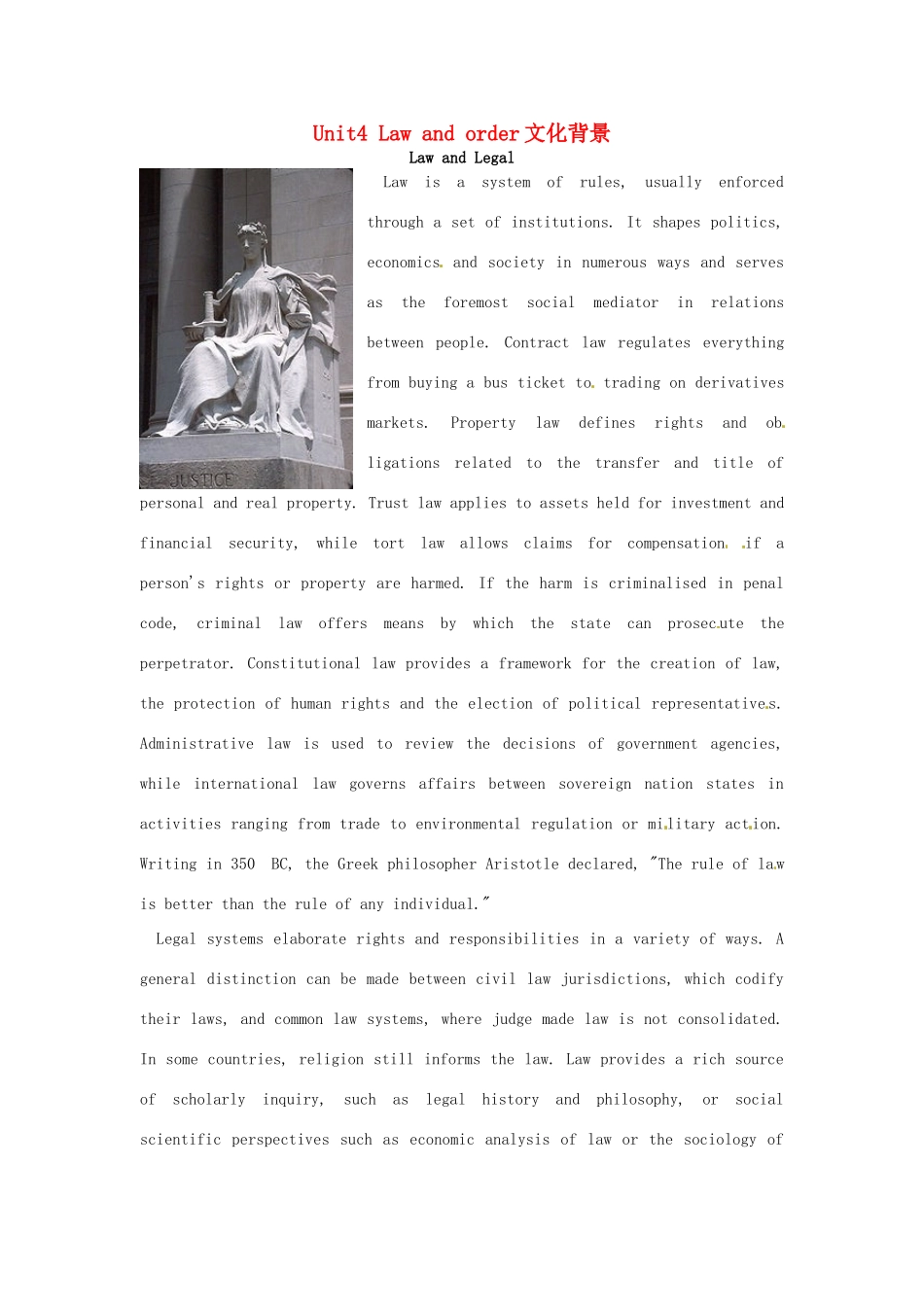Unit4 Law and order 文化背景Law and LegalLaw is a system of rules, usually enforced through a set of institutions. It shapes politics, economics and society in numerous ways and serves as the foremost social mediator in relations between people. Contract law regulates everything from buying a bus ticket to trading on derivatives markets. Property law defines rights and obligations related to the transfer and title of personal and real property. Trust law applies to assets held for investment and financial security, while tort law allows claims for compensation if a person's rights or property are harmed. If the harm is criminalised in penal code, criminal law offers means by which the state can prosec ute the perpetrator. Constitutional law provides a framework for the creation of law, the protection of human rights and the election of political representative s. Administrative law is used to review the decisions of government agencies, while international law governs affairs between sovereign nation states in activities ranging from trade to environmental regulation or mi litary action. Writing in 350 BC, the Greek philosopher Aristotle declared, "The rule of la w is better than the rule of any individual." Legal systems elaborate rights and responsibilities in a variety of ways. A general distinction can be made between civil law jurisdictions, which codify their laws, and common law systems, where judge made law is not consolidated. In some countries, religion still informs the law. Law provides a rich source of scholarly inquiry, such as legal history and philosophy, or social scientific perspectives such as economic analysis of law or the sociology of law. The study of law raises important and complex issues concerning equality, fairness, liberty and justice. "In its majestic equality", said the author Anatole France in 1894, "the law forbids rich and poor alike to sleep under bridges, beg in the streets and steal loaves of bread." In a typical democracy, the central institutions for interpreting and creating law are the three main branches of government, namely an impartial judiciary, a democratic legislature, and an accountable executive. To implement and enforce the law and provide services to the public, a government's bureaucracy, the military and police are vital. While all these organs of the state are creatures created and bound by law, an independent legal profession and a vibrant civil society inform and support their progress.

